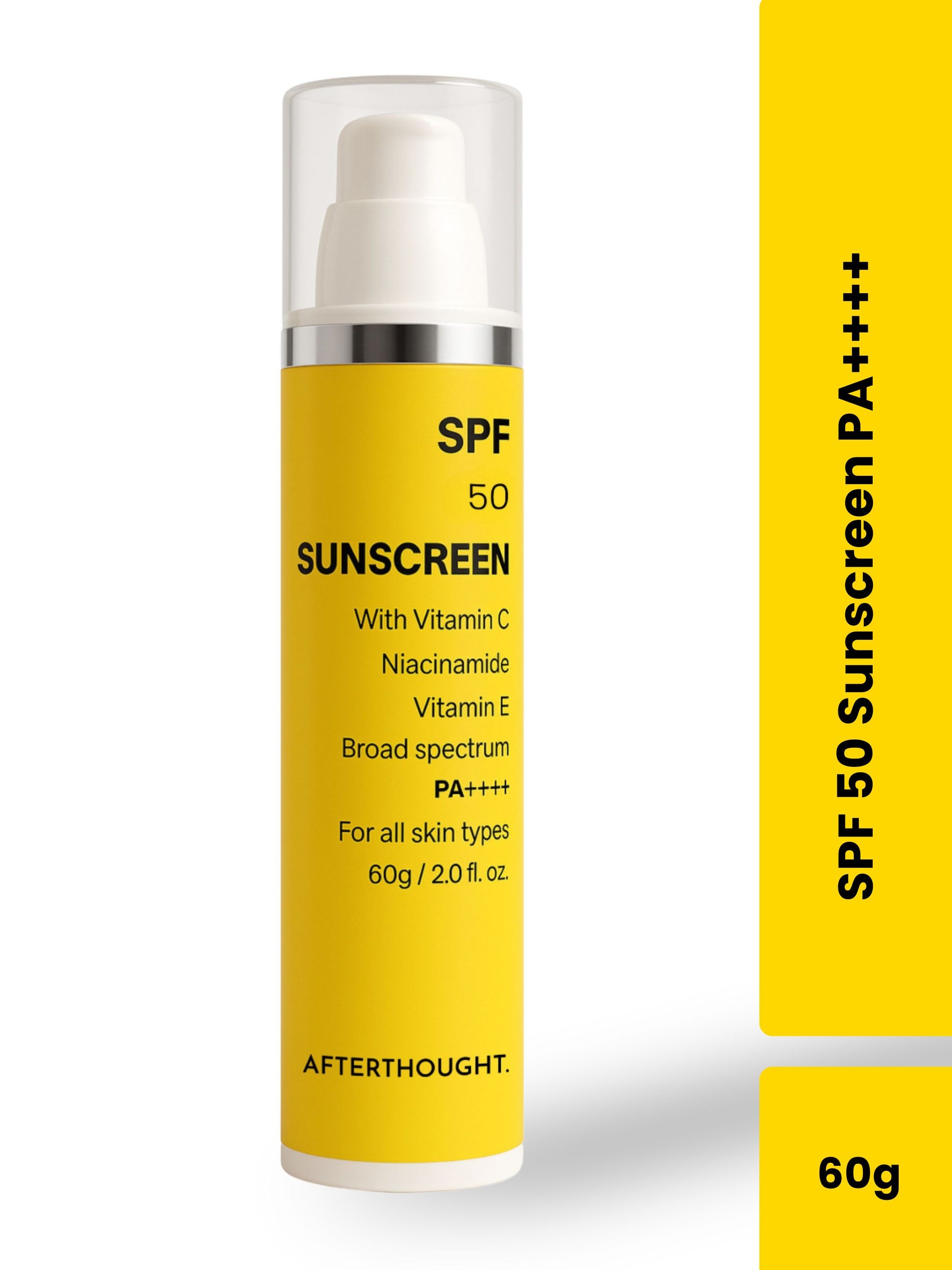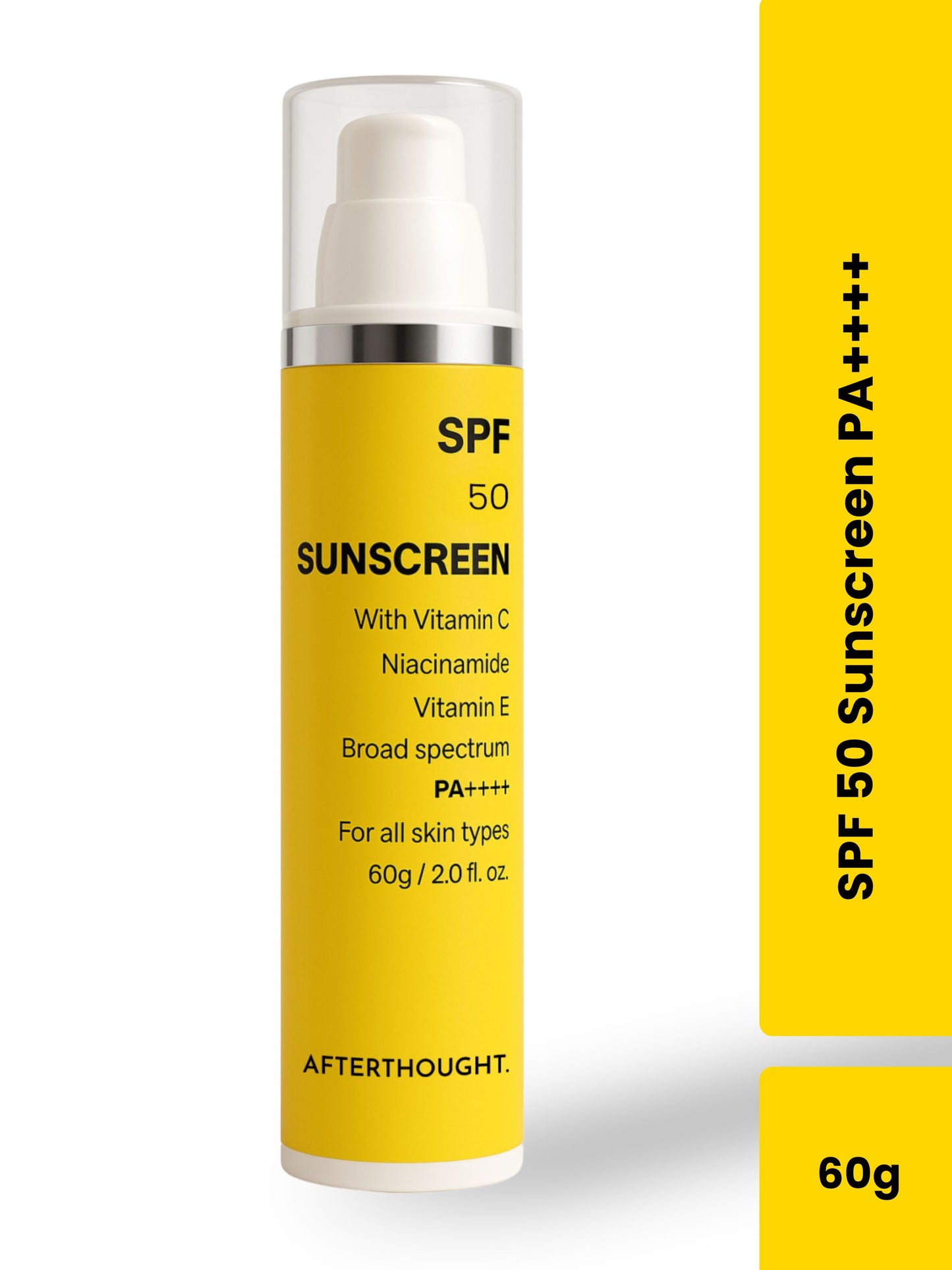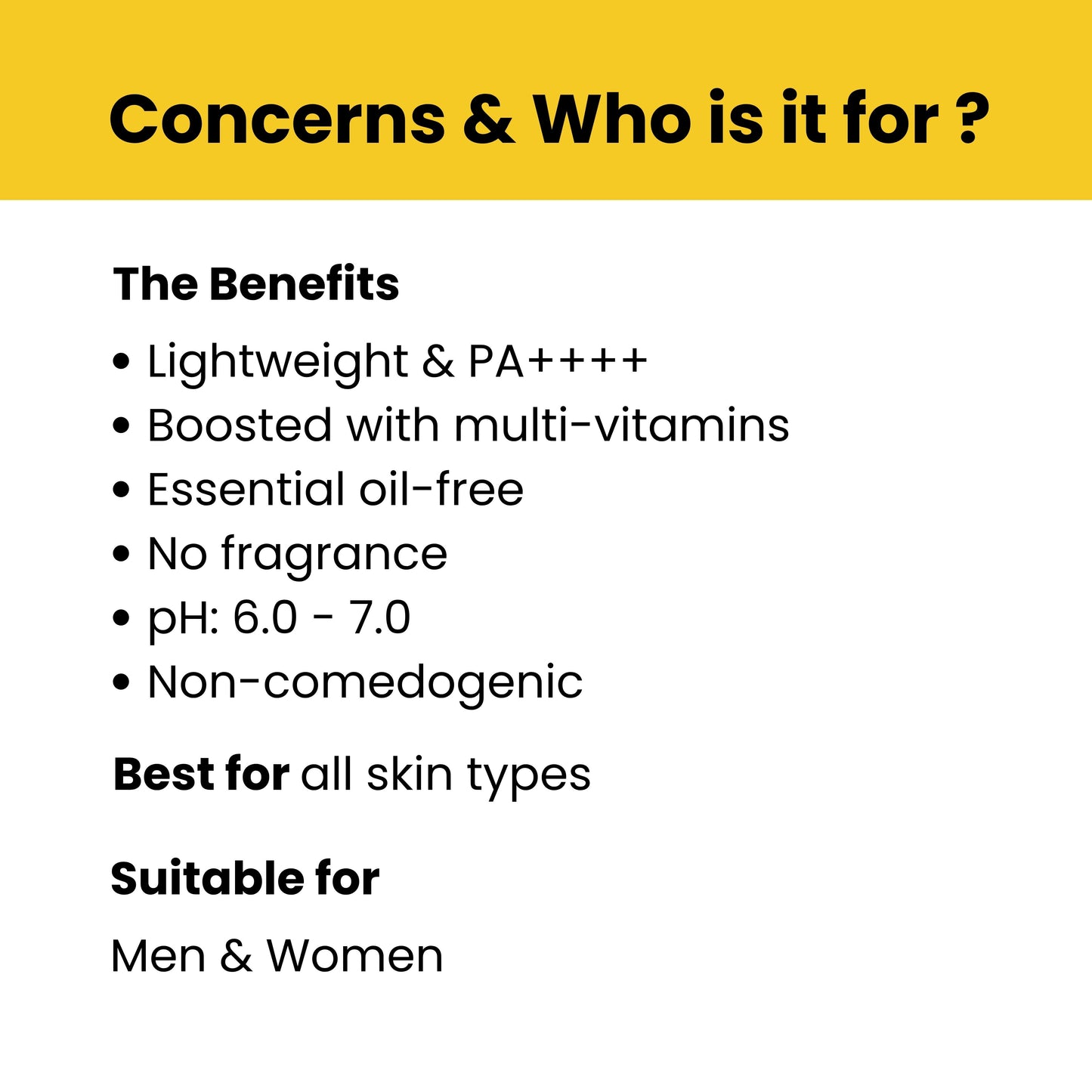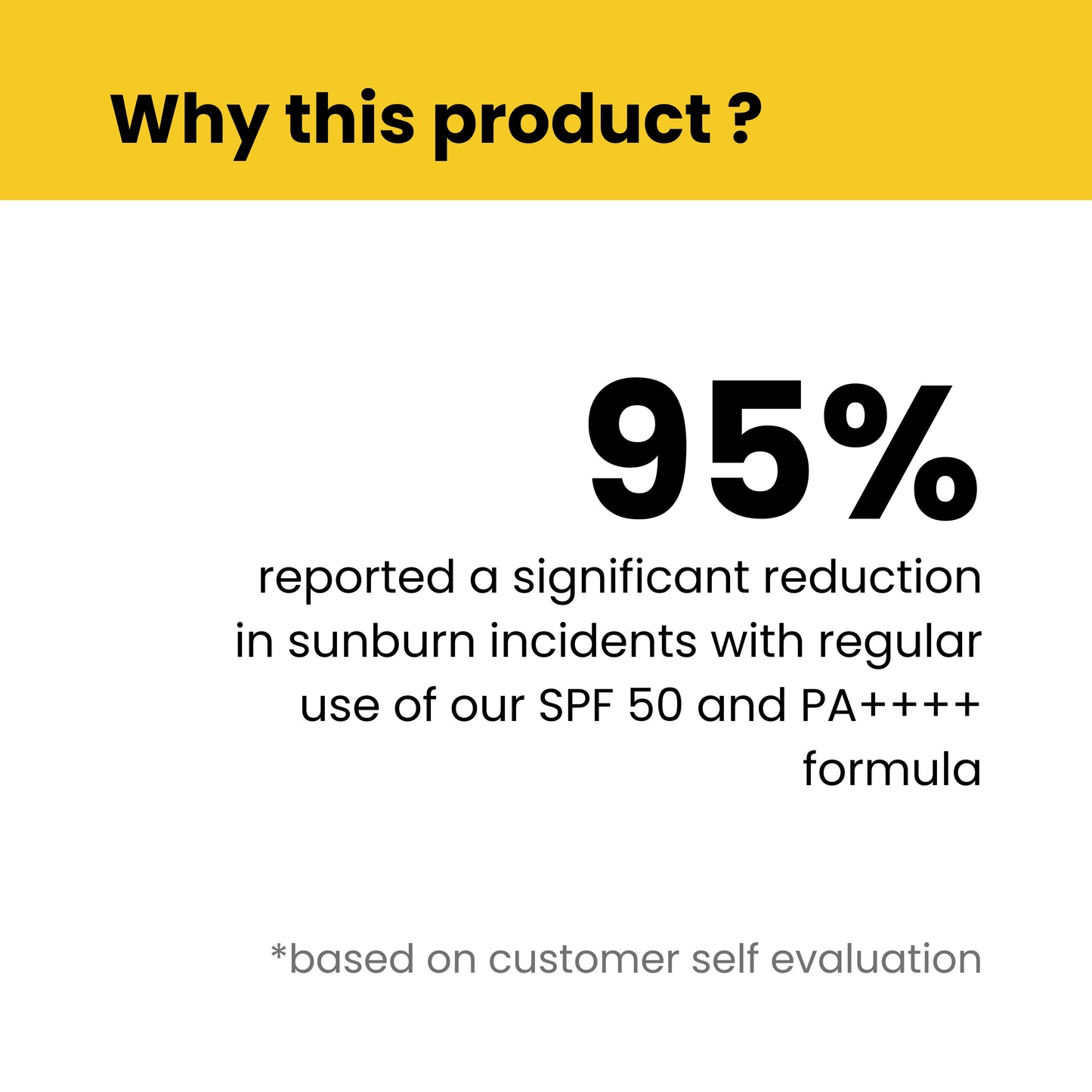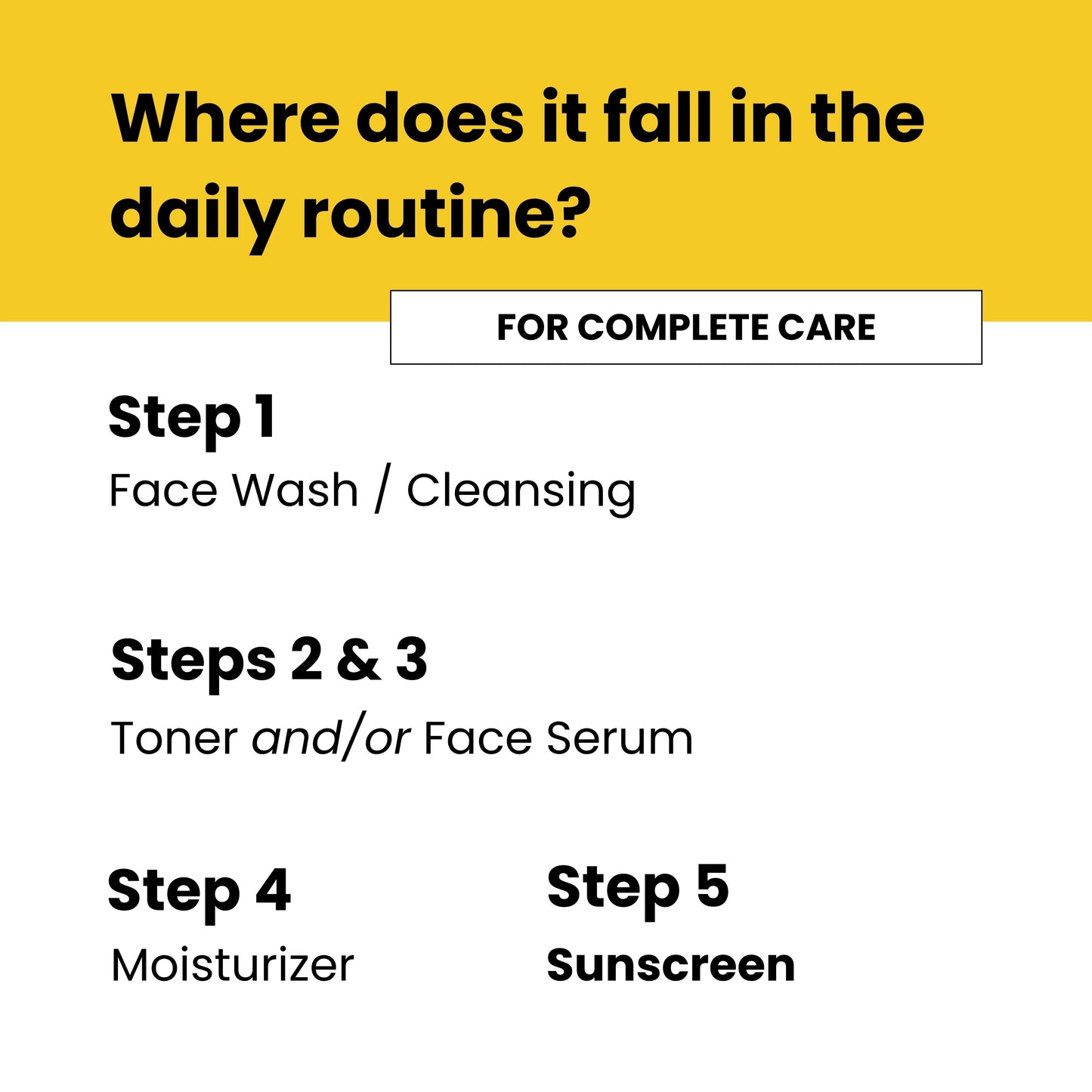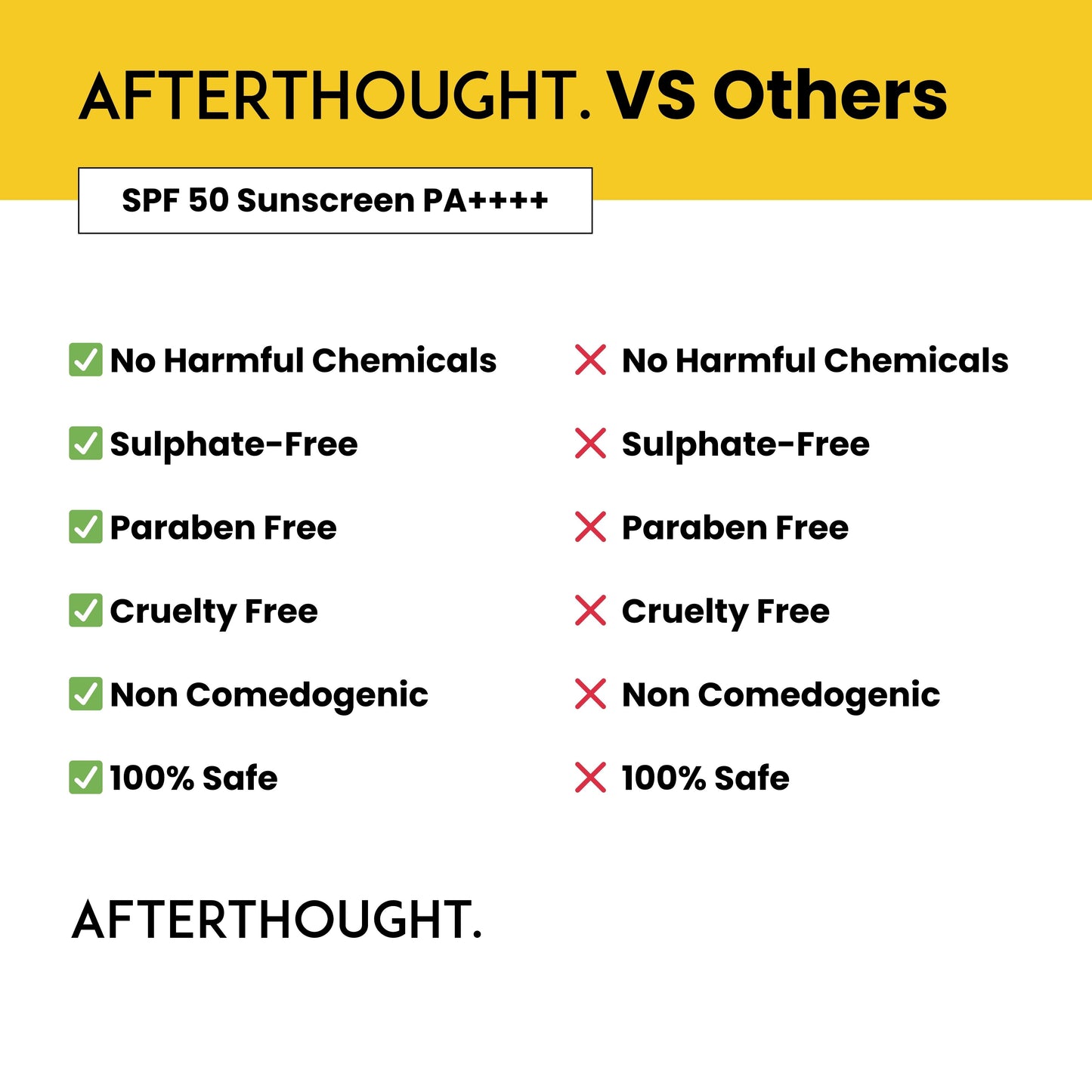Does Sunscreen Make Your Skin Glow?
When it comes to skincare, many are surprised to learn that sunscreen plays a pivotal role in achieving that coveted, radiant glow. Sunscreen, often overlooked in favor of more glamorous skincare products, is a powerhouse in maintaining and enhancing skin health. Welcome to Afterthought.
Let's delve into the multifaceted ways sunscreen can contribute to glowing skin and why it deserves a permanent spot in your daily routine.
The Science Behind the Glow
1. Protection Against UV Rays: The sun emits ultraviolet (UV) rays, primarily UVA and UVB, which can penetrate the skin and cause damage. UVA rays are known for causing premature aging, while UVB rays are responsible for sunburns. Overexposure to these rays can lead to skin damage, pigmentation issues, and even skin cancer. By providing a shield against these harmful rays, sunscreen helps prevent the damage that can dull your skin’s natural glow.
2. Prevention of Hyperpigmentation: Hyperpigmentation, including sunspots, age spots, and melasma, occurs when certain areas of the skin produce more melanin in response to UV exposure. This results in uneven skin tone and dark spots. Regular use of sunscreen prevents the formation of these spots, helping to maintain a more even, luminous complexion.
3. Minimizing Redness and Inflammation: Sun exposure can cause redness and inflammation, leading to an uneven skin tone and a less radiant appearance. Sunscreen helps mitigate these effects by protecting the skin’s barrier and preventing UV-induced irritation.
4. Anti-Aging Benefits: One of the primary causes of premature skin aging is sun exposure. UV rays break down collagen and elastin fibers in the skin, leading to wrinkles, fine lines, and sagging. By protecting your skin from these rays, sunscreen helps preserve its firmness and elasticity, which are crucial for maintaining a youthful glow.
Sunscreen and Skin Health
1. Hydration and Skin Barrier Function: Many modern sunscreens are formulated with moisturizing ingredients that help keep the skin hydrated. A well-moisturized skin surface is essential for that dewy, glowing look. Additionally, sunscreen helps maintain the skin’s barrier function, preventing moisture loss and keeping the skin plump and healthy.
2. Combatting Free Radicals: UV exposure can lead to the production of free radicals, which cause oxidative stress and damage skin cells. This damage can manifest as dull, tired-looking skin. Sunscreen acts as a protective barrier, reducing the formation of free radicals and preserving the skin’s vitality.
Choosing the Right Sunscreen for Glowing Skin
1. Broad-Spectrum Protection: For comprehensive protection, choose a sunscreen that offers broad-spectrum protection. This means it guards against both UVA and UVB rays, providing a more complete defense against the sun’s harmful effects.
2. Suitable SPF: While SPF 30 is generally recommended for daily use, those with fair skin or who spend extended periods outdoors might benefit from higher SPF levels. However, it’s important to note that no sunscreen can block 100% of UV rays, so reapplication is key.
3. Skin-Friendly Ingredients: Opt for sunscreens that include skin-loving ingredients such as hyaluronic acid, glycerin, and antioxidants. These ingredients not only protect but also nourish the skin, enhancing its natural radiance.
4. Lightweight and Non-Comedogenic Formulas: For those with oily or acne-prone skin, lightweight and non-comedogenic sunscreens are ideal. These formulations won’t clog pores or contribute to breakouts, ensuring your skin remains clear and glowing.
Incorporating Sunscreen into Your Daily Routine
1. Daily Application: Make sunscreen a non-negotiable part of your morning routine, regardless of the weather or season. UV rays can penetrate clouds and windows, making daily protection essential.
2. Correct Application: Apply sunscreen generously to all exposed areas of skin, including the face, neck, ears, and hands. A common guideline is to use about a teaspoon for the face and neck and a shot glass amount for the body.
3. Reapplication: For continued protection, reapply sunscreen every two hours, or more frequently if swimming or sweating. Many modern sunscreens come in convenient formats like sprays and powders, making reapplication easier throughout the day.
4. Complement with Other Skincare Products: Sunscreen should be the last step in your skincare routine, applied after moisturizers and serums. This ensures that your skin receives all the benefits of your other products without compromising sun protection.
Check Now : Sunscreen SPF Calculator
Conclusion
Incorporating sunscreen into your daily skincare regimen is a simple yet powerful way to enhance your skin's natural glow.
By protecting against UV damage, preventing hyperpigmentation, and preserving the skin’s youthful structure, sunscreen is a crucial ally in the quest for radiant, healthy skin.
So, embrace the protective power of sunscreen and let your skin shine with confidence.
Also Read: Which Sunscreen Is Best For Sensitive Skin?


